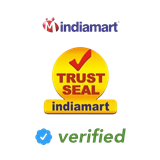
6 Myths of Water Softeners: Debunking Common Misconceptions
Myth 1: Does Water softeners waste water ?
One prevalent myth about water softeners is that they waste excessive amounts of water. While it’s true that traditional water softeners used to consume significant amounts of water during the regeneration process, modern water softeners have become much more efficient. Advanced technologies now allow for reduced water usage, making them more environmentally friendly and cost-effective.
Myth 2: Is Soft water not safe to drink ?
Another misconception is that soft water generated by water softeners is not safe for drinking. This couldn’t be further from the truth. Soft water is free from the minerals that cause water hardness, such as calcium and magnesium. These minerals do not play a significant role in human health, and their removal through the water softening process does not compromise the safety or taste of the water. Soft water can be safely consumed and used for cooking without any concerns.
Myth 3: Are Water softeners expensive ?
Some people believe that water softeners are costly investments, reserved only for those with substantial budgets. However, the truth is that water softeners come in a range of models and price points, making them accessible to various households. The initial investment in a water softener is often offset by the long-term benefits it provides. Softened water helps protect your appliances, reduces energy consumption, extends the lifespan of plumbing systems, and even enhances the effectiveness of cleaning products.
Myth 4: Soft water is not as effective at cleaning?
Contrary to popular belief, soft water actually improves the cleaning efficiency of soaps, detergents, and cleaning agents. Hard water contains minerals that can interfere with the lathering and rinsing process, reducing the effectiveness of cleaning products. With soft water, you’ll experience better lathering, easier rinsing, and cleaner results. Softened water ensures that your dishes, clothes, and surfaces are thoroughly clean and spot-free.
Myth 5: Water softeners are difficult to install ?
Another myth surrounding water softeners is the assumption that they are challenging to install. While professional installation is recommended for complex systems, many water softeners available on the market today are designed for easy installation. They come with detailed instructions and user-friendly interfaces, allowing homeowners to set them up with minimal effort. Additionally, there are plenty of resources available, including online tutorials and customer support, to guide you through the installation process.
Myth 6: Does Water softeners require constant maintenance ?
Lastly, some individuals worry that water softeners demand constant upkeep and maintenance. Fortunately, modern water softeners are designed to be low-maintenance. Many models come equipped with self-cleaning features and automatic regeneration cycles, reducing the need for manual intervention. Routine maintenance tasks, such as replenishing salt or replacing filters, are straightforward and infrequent. With proper care and occasional checks, your water softener can provide reliable service for years to come.
In conclusion, water softeners offer a range of benefits for households dealing with hard water issues. By dispelling these common myths, we hope to provide a clearer understanding of the advantages of water softeners. They are efficient, safe, and cost-effective solutions that enhance the quality of water.


